#clara wieck
Explore tagged Tumblr posts
Text

💐Clara Schumann (Wieck)💐
Well I drew her from memory in school today, sorry if there's any inaccuracy here in this piece of art 😔
#art#doodle#classical composer#classical composers#classical composer fanart#classical music fanart#clara schumann#clara wieck#Robert's wife is so pretty 😍💅#I'm fr here😭😭#my fanart#my art#school doodles#My exams are coming next week so wish me luck guys 😍😍💔💔💔💔#Sadge
26 notes
·
View notes
Text
Happy Birthday, Clara Wieck - Schumann! Born Sept. 13, 1819
Clara Wieck – Schumann was a renowned pianist and composer who made a significant impact on the world of classical music during the 19th century and beyond. During a time when women were largely excluded from the world of classical music, Clara defied expectations and forged a successful career as a pianist and composer. Clara Schumann was a trailblazer for women in music. Type your…
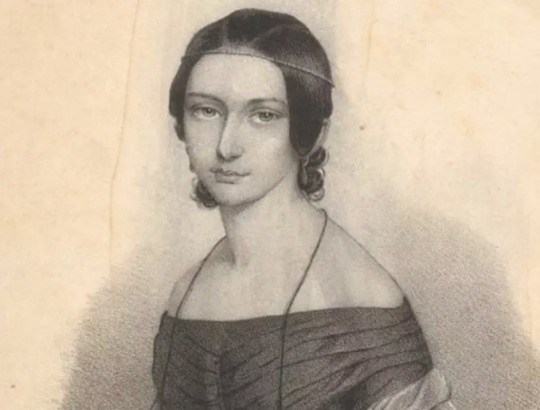
View On WordPress
#birthday#Clara Schumann#Clara Wieck#classical music#Fanny Hensel#Fanny Mendelssohn#Great composers#music#music discussion#Music Education#music history#musician#piano#Schumann#TeamHensel#virtuoso#Women in Music
0 notes
Text
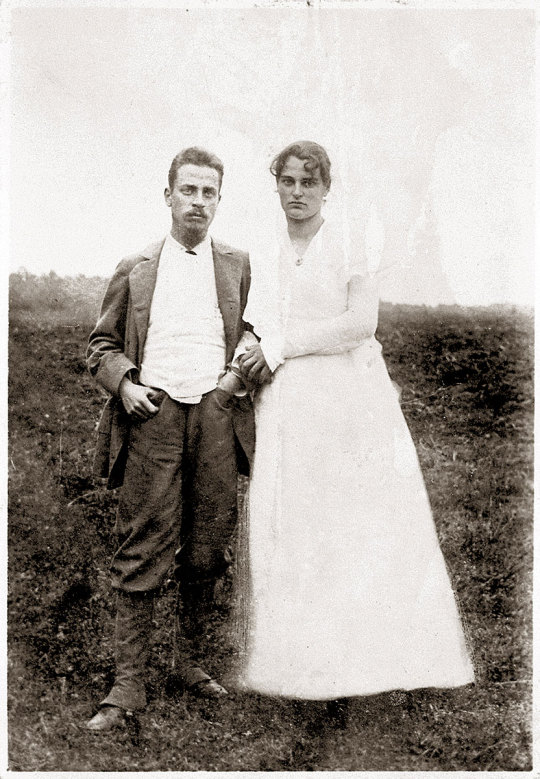
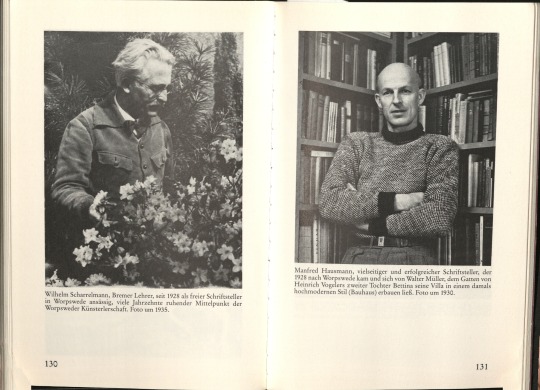
#rainer maria rilke#clara westhoff#worpswede#clara wieck#nastassja kinski#frühlingssinfonie#fritz mackensen#großherzoglich-sächsische kunstschule weimar#lotte am bauhaus#manfred hausmann
1 note
·
View note
Text
schumendy?? at this century and era?? yessirrr
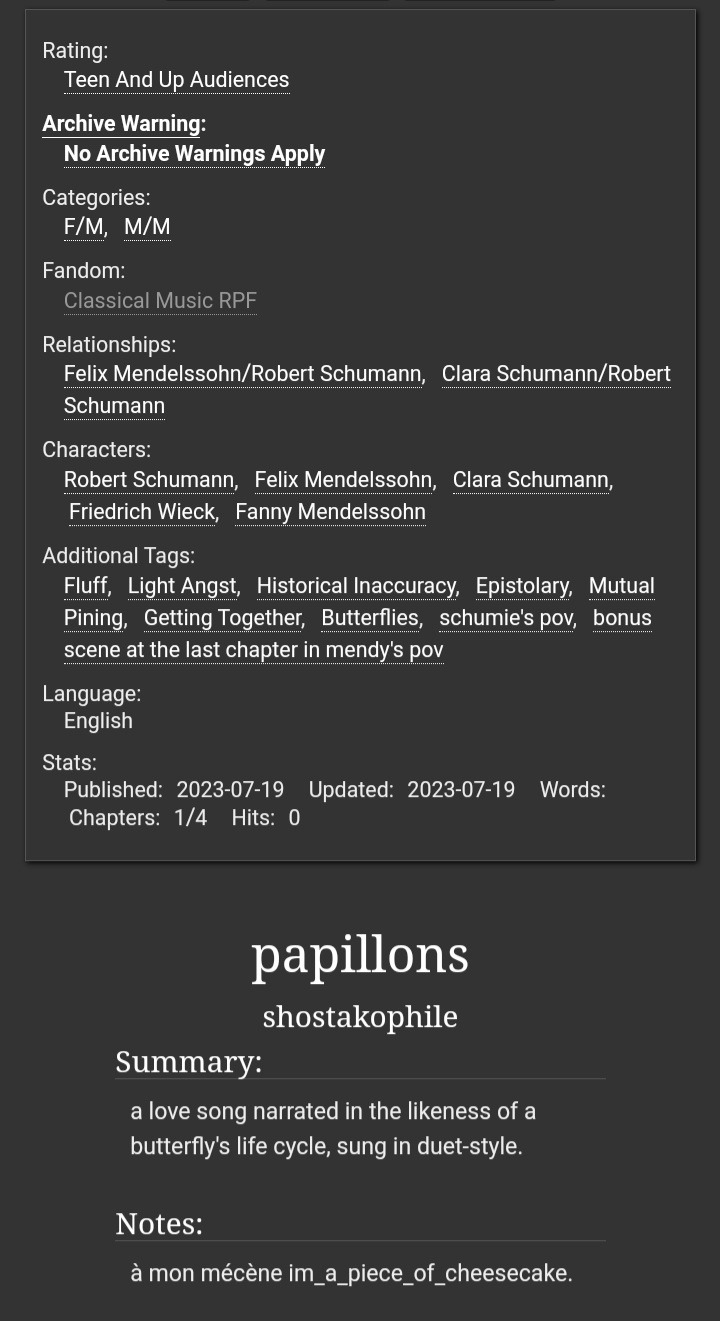
#shostakophile writes#classical music#robert schumann#felix mendelssohn#clara schumann#friedrich wieck#fanny mendelssohn#schumendy#YES I SAID SCHUMENDY IS THERE A PROBLEM#cheesecake-san whoever you are i am forever grateful to you for introducing me to this rarepair
15 notes
·
View notes
Text
Beau Soleil Piano Quartet Hermanus Civic Auditorium South Africa
#Beau Soleil Music Centre Kenilworth#Beau Soleil Piano Quartet#Clara Wieck Schumann#Count Mathieu Wielhorsky#Dane Coetzee Cellist#Hermanus Civic Auditorium#Joaquin Turina Piano Quartet in A min Op 67#Liza Joubert Pianist#Lucia Di Blasio-Scott Violinist#Marina Louw Violist#Overberg Community#Overstrand Arts Kunste#Publisher Franz Anton Hoffmeister#Robert Schumann Piano Quartet in E flat Op 47#Wolfgang Amadeus Mozart Piano Quartet No 2 in E flat K 493
0 notes
Text
Clara Wieck Schumann
Clara Wieck è stata la più importante pianista e compositrice del Romanticismo. Suonava con una profonda espressività unita a un virtuosismo trascendentale, elasticità di tocco, rotondità e intensità sonora.
Nata col nome di Clara Josephine Wieck il 13 settembre 1819 a Lipsia, in Germania, da Marianne Tromlitz, pianista e cantante e Friedrich Wieck, famoso insegnante di pianoforte che le diede lezioni fin dalla più tenera età e le fece seguire un rigoroso programma di studio che comprendeva anche altre materie come lingue e letteratura.
Anche sua madre ebbe un’apprezzabile carriera come cantante e pianista, fino al divorzio col coniuge-mentore, nel 1824. Per la legge di Lipsia, Clara fu affidata ala custodia del padre che su lei riversò la sua pervicacia didattica.
Ha fatto il suo debutto pubblico come pianista a soli 9 anni e, considerata una enfant prodige, sin da giovanissima tenne concerti in tutta Europa, riscuotendo grande ammirazione, acclamata dalla critica del tempo.
Friedrich Wieck che accompagnava sempre la giovane figlia in tournée, si occupava delle pubbliche relazioni, dei contratti, della sala, dello strumento. Già nel 1835 era conosciuta in tutta Europa come pianista talentuosa e raffinata compositrice.
Era ancora una bambina quando, nel 1830, conobbe il compositore Robert Schumann, allora studente di suo padre che aveva osteggiato fortemente la loro relazione. Arrivarono addirittura a una lunga battaglia legale col genitore di lei che non voleva intralci nella vita professionale della figlia, Si sposarono nel 1840, a compimento del suo ventunesimo compleanno.
Ha partorito otto figli e figlie e continuato a esibirsi in concerti tra Europa e Russia e, nei ritagli di tempo, a comporre.
Robert e Clara erano felici di condividere le reciproche idee musicali talvolta anche citandosi a vicenda nelle proprie opere, ma il suo talento di compositrice è stato oscurata dalla fama del marito.
Già nel 1835 ha composito un Concerto per pianoforte ed orchestra, pubblicato più tardi come op.7, opera importante di cui ha curato interamente anche l’orchestrazione.
Nel 1838 l’Imperatore d’Austria la nominò Virtuosa da Camera.
Nel 1841, la coppia pubblicò insieme la raccolta Zwölf Gedichte aus F. R��ckert’s Liebesfrühling von Robert und Clara Schumann, op. 37/12.
L’anno successivo, Clara musicò gli Incantesimi d’amore di Geibel e la raccolta Sie liebten sich beiden di Heine da offrire in regalo a Robert per il suo compleanno.
Il suo progresso come compositrice venne arrestato dalla crescente instabilità mentale del coniuge che si divideva tra momenti di forsennata creatività ad altrettanti di quasi totale apatia, tentò anche il suicidio.
Clara sosteneva il marito emotivamente, artisticamente e spesso finanziariamente, dando lezioni di pianoforte, riprendendo a suonare in giro per l’Europa e componendo quelle che sono, forse, le sue opere maggiori.
All’estate del 1846 risale quello che è considerato il suo miglior lavoro cameristico, il Trio op. 17 per Piano violino e Violoncello in quattro movimenti.
Nel 1854, il marito venne rinchiuso in un ospedale psichiatrico e, dopo due anni morì.
La morte di Schumann segnò l’inizio di una seconda vita, durata altri 40 anni in cui Clara Wieck ha continuato la sua carriera concertistica nonostante i forti dolori alle articolazioni dovuti allo sforzo nello studio e nelle esibizioni.
Nel 1887 assunse la docenza di pianoforte al Conservatorio di Francoforte dove tenne anche la sua ultima esibizione pubblica, nel marzo 1891.
A causa di una crescente sordità, cedette il posto al Conservatorio nel 1892 pur continuando a insegnare privatamente fino alla sua morte, avvenuta a Francoforte sul Meno, il 20 maggio 1896.
La vita di questa straordinaria musicista si è divisa tra il compiacere le ambizioni del padre e quelle del marito di cui subiva la forte fascinazione.
Dopo la morte di Schumann si è dedicata principalmente alla promozione delle sue opere e alla numerosa famiglia, lasciando definitivamente il suo talento creativo in un cassetto insieme a quelle composizioni che oggi, fortunatamente, sono state riscoperte e stabilmente tornate nelle sale da concerto.

0 notes
Text
Having just found out it is Women's History Month, it seems my apt applying of our Sunday Classical Search be focused on a woman last week, needs be adapted to cover the entire month. Happy am I, to of accidentally stumbled upon a theme. Therefore, let us enjoy a piece the Piano Concerto in A Minor, Movement II: Romanze by Clara Wieck-Schumann
Sadly, it is with great sorrow I must report that Clara Josephine Schumann, born Clara Wieck, was, initially, perfect example for why representation in a genre is important. A prodigy the likes of Mozart, terribly gifted, voraciously intelligent touring Europe at 11. She would go on to write her famous Piano Trio at the age of 13 and was able to perfectly memorize Bach, Beethoven and Mozart with absolute ease. And while her husband, Robert Schumann is well reknown throughout the world as one of the greatest classical composers of his time. She skirted away from the lime light, only playing the piano for entertainment at family gatherings.
She had gone of record as saying, quote: "I once believed that I possessed creative talent, but I have given up this idea; a woman must not desire to compose—there has never yet been one able to do it. Should I expect to be the one?"
But, we today with the benefit of hindsight and the discovery of her compositions, know her to be one of the greatest classical composers of her era and is now spoken highly of in the same sentence as her husband, if not even more so.
What eventually broke her out of her shell was her close friendship with Johannes Brahms and after being encouraged by him and her husband was eventually persuaded to give public premieres of her many, many works. And I think it safe to say, we all benefit greatly from knowing her works.
9 notes
·
View notes
Text
To add on feminism on Madoka Magica: they are men in Madoka Magica, and you can say something feminist about the role of those men in the show.
Like, Sayaka and Kyoko sacrified their life for a man and got no reward for it. So many women sacrified their career for a man. Take for example Clara Wieck, Clara Schumann after her marriage. She was a talented pianist and composer, but she couldn't continue after her marriage. Meanwhile, her husband became a great composer of his time. And this is just the tip of the iceberg.
Idk, when I think about it, it looks like a powerful metaphor for women exploitation by men.
By only depicting Kyoko as a competitor (in order to drive his point), this guy skipped his backstory, which can be really relevant in a feminist perpective.
12 notes
·
View notes
Text
Dobry wieczór. Since it’s International Women’s Day (albeit not strictly), tonight I would like to draw my followers’ attention to the female pianists and composers who were my contemporaries… Apologies for the lengthiness, evidently there is a lot to be covered.
Clara Schumann 1819-1896
youtube
A child prodigy, Clara was taught piano by her father and by thirteen he was taking her on concert tours.
She met Robert Schumann as a child when he came to Leipzig to study law at the university. He took piano lessons from Clara’s father, Friedrich Wieck. When she was 18, he proposed to her. They married in 1840.
The virtuoso went on tours with her husband and earn money by performing and teaching. She was also a gifted composer, however most of her time was spent looking after her family, editing Robert’s music and playing. Clara’s compositions include more than 20 piano works, a piano concerto, some chamber music and several songs.
Fanny Mendelssohn 1805–1847
youtube
Composer and pianist, Fanny grew up in Berlin, sharing the same musical education as her brother Felix, with whom she had a close relationship.
Her compositions include a piano trio, a piano quartet, an orchestral overture, four cantatas, more than 125 pieces for the piano and over 250 lieder, most of which were unpublished in her lifetime. Although lauded for her piano technique, she rarely gave public performances outside her family circle.
Owing to her family's reservations and to social conventions of the time about the roles of women, six of her songs were published under her brother's name in his Opus 8 and 9 collections.
Marie Moke 1811-1874
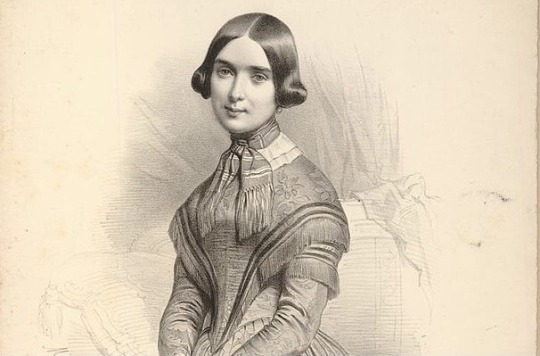
Marie Moke gave her first concert at the age of eight and by the age of fifteen, she was already known in Belgium, Austria, Germany and Russia as an accomplished virtuoso.
She married pianist and piano manufacturer, Camille Pleyel, but they later separated on account of her promiscuity. Heinrich Heine considered her among the greatest pianists “Thalberg is a king, Liszt a prophet, Chopin a poet, Herz an advocate, Kalkbrenner a minstrel, Mme Pleyel a sibyl, and Döhler a pianist.”
Later on, she created the piano school at the Royal Conservatory in Brussels where she taught from 1848 to 1872.
Louise Farrenc 1804-1875
youtube
A French composer, virtuoso pianist and teacher, she started playing young and had piano lessons with famous teachers such as Moscheles and Hummel. She studied composition privately with Anton Reicha at the Paris Conservatoire, unable to go to composition classes as a woman. By the 1820s she was touring France, giving concerts.
In 1842 she was made Professor of Piano at the Paris Conservatoire where she stayed for 30 years. For a decade she was paid less than the male teachers. Only after the triumphant premiere of her nonet did she demand and receive equal pay. She wrote a wide variety of piano music, but her chamber pieces are considered to be her best work.
Pauline Viardot 1821-1910
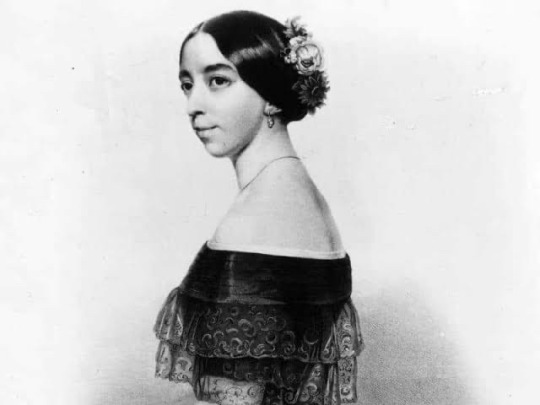
From a musical family (including her older sister, Maria Malibran) Pauline was trained by her father on the piano and in singing.
In her youth she took piano lessons with Franz Liszt and counterpoint and harmony classes with Anton Reicha. However, despite wanting to become a concert pianist, she was directed towards singing by her mother.
Pauline began composing when she was young, but it was never her intention to become a composer. Written mainly as private pieces for her students, her works were still of professional quality and Franz Liszt declared that, with Pauline Viardot, the world had finally found a woman composer of genius. Compositions include her chamber operas Le dernier sorcier and Cendrillon.
Arabella Goddard 1836–1922
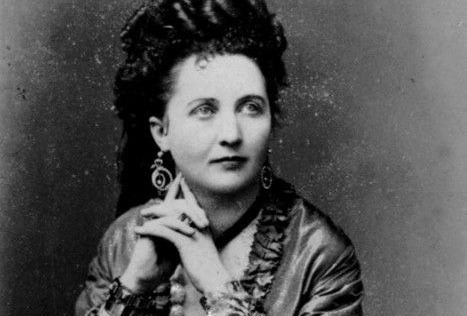
Born in France to English parents, at age six Arabella was sent to Paris to study with Friedrich Kalkbrenner. Aged seven she played for myself and George much to our pleasure.
During the 1848 Revolution her family had to return to England; there, Arabella had further lessons with Lucy Anderson and Sigismond Thalberg. She was known for her ability to play recitals from memory.
Arabella was appointed a teacher at the Royal College of Music in 1883. This was the RCM’s first year of operation and Arabella was its first female professor. She composed a small number of piano pieces, including a suite of six waltzes.
Marcelina Czartoryska 1817-1894
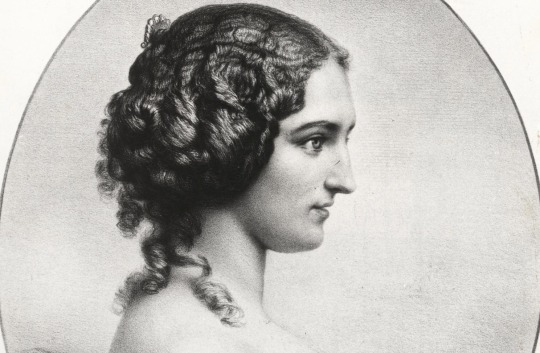
Born into the aristocratic Polish family, the Radziwiłłs, Marcelina was taught piano by Carl Czerny in Vienna and by myself in Paris. She gave concerts across Europe, with Franz Liszt, Pauline Viardot and Henri Vieuxtemps.
From 1870 she lived in Kraków, where she gave mainly private concerts and, thanks to her artistic connections, contributed to founding Kraków’s Academy of Music in 1888.
Maria Kalergis 1822-1874
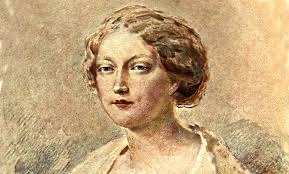
Raised in Saint Petersburg in the home of her paternal uncle, the Tsar's minister of foreign affairs, Maria received a thorough education where she evinced an early musical talent.
She was a student of mine and held salons in Paris whose guests included Liszt, Richard Wagner, de Musset, Gautier and Heine. Later, she became a hostess and a patron of the arts in Warsaw.
She was a co-founder of the Warsaw Musical Institute, now the Warsaw Conservatory and established the Warsaw Musical Society, now the Warsaw Philharmonic. Between 1857 and 1871 she made frequent appearances as a pianist.
On her death, Franz Liszt wrote his Elegy on Marie Kalergi.
#clara schumann#fanny mendelssohn#classical composers#romantic era#classical music#international women's day#romanticism
37 notes
·
View notes
Text

(A Little Life, Part 5, Chapter 2, pg. 602 - Hanya Yanagihara)
Why Schumann?
After some digging on the internet, I have learnt that it is not a coincidence that Hanya chose Schumann's Fantasie in C for this moment, and I believe Jude was playing the first movement in this part. Fantasie in C was composed in 1836 as only a piece called Ruines, expressing his distress at being distant from his beloved Clara, and then it became the first movement of Fantasie. The first movement of the work contains a musical quote from Beethoven's song cycle, An die ferne Geliebte (To the distant beloved) as a secret love message:
Take, then, these songs, beloved, which I have sung for you
However, this musical quotation was not acknowledged by Schumann. The movement also was prefaced with a quote from Friedrich Schlegel:
Durch alle Töne tönet / Im bunten Erdentraum / Ein leiser Ton gezogen / Für den, der heimlich lauschet.
Resounding through all the notes / In the earth's colorful dream / There sounds a faint long-drawn note / For the one who listens in secret
During this period, Robert Schumann and Clara Wieck was in separation because Clara's father disapproved of their relationship. Those quotations truly reflected his yearning to Clara, his passionate love to her, and it is more beautiful to learn that they communicated mostly through music and journals because Clara did not communicate verbally well. In a letter sent to Clara in 1838, he wrote:
The first movement may well be the most passionate I have ever composed - a deep lament for you.
They got married in 1840 but their marriage was not through an easy path because Schumann was not mentally well.
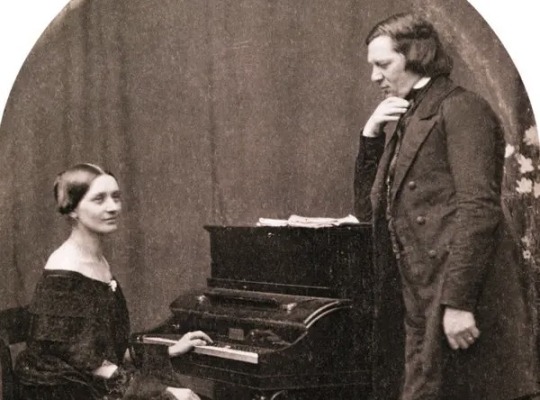
(Clara and Robert Schumann around 1850. Corbis, via Getty Images)
In August of 1844, he suffered a severe mental and physical breakdown. He was in pains, he trembled, wept, could not sleep and even became so sick that he could not walk across the room by himself. By February of 1854, Schumann insisted to be committed, as he felt that he had lost control of his mind. On 27th February, he attempted suicide by throwing himself from a bridge into the Rhine River. He was rescued and taken to the hospital later and remained there until his death on 29th July, 1856. During his confinement, Clara was not allowed to visit him (they communicated thanks to Johannes Brahms, a very good friend of the family, especially Clara) and only able to meet him 2 days before his death.
In Clara's journal on 26th February, 1854 (1 days before his attempt suicide), she wrote:
He was so melancholy that I cannot possibly describe it. When I merely touched him, he said, "Ah Clara, I am not worthy of your love." He said that, he to whom I had always looked up with the greatest, deepest reverence.
The resemblance of Jude and Schumann's mental illness may be one of the reason that Hanya chose this piece for Jude to play after he and Willem got home after their big fight. Jude plays the song with the intention to ease his sadness and fear. In this moment, he feels that this might be the end of their relationship, he is afraid that Willem would leave him because now he finally sees how sick he is. The piece Fantasie symbolizes a yearning for love but in this moment, it is a calling for Willem to stay, to understand, to forgive his action, his sickness.
Sources:
Acreman, Thomas. (2017). The Love Story of Clara Schumann. Retrieved from http://www.classichistory.net/archives/clara-schumann
Wilson, Frances. (2019). A Love Letter in Music Schumann's Fantasie in C, Op. 17. Retrieved from https://interlude.hk/love-letter-music-schumanns-fantasie-c-op-17/
#a little life#hanya yanagihara#jude st. francis#willem ragnarsson#robert schumann#clara schumann#literature#classical music#schumann#thank you to people who reblogged this post i don't know how to comment on your reblog post#my a little life revisit diary
92 notes
·
View notes
Text


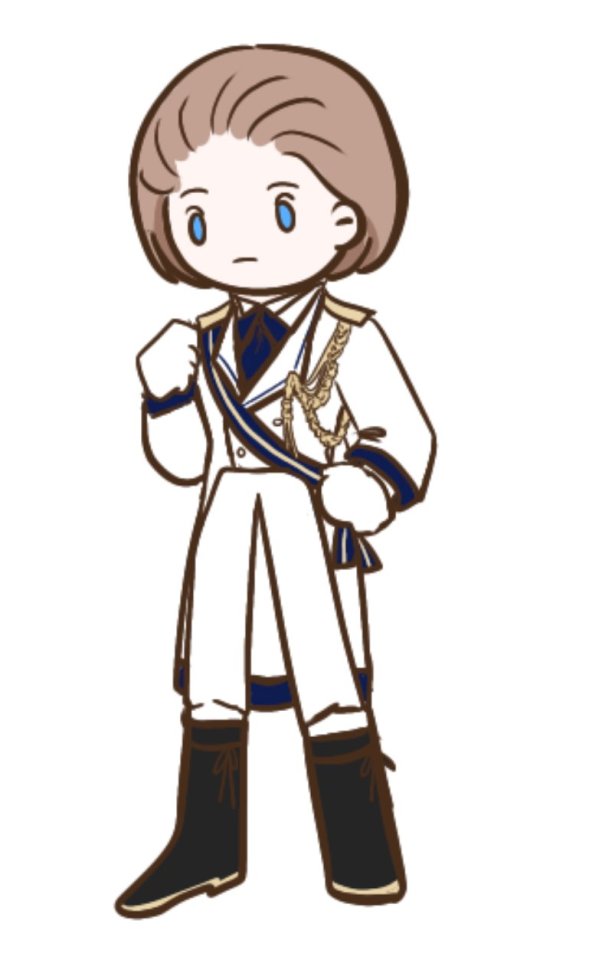
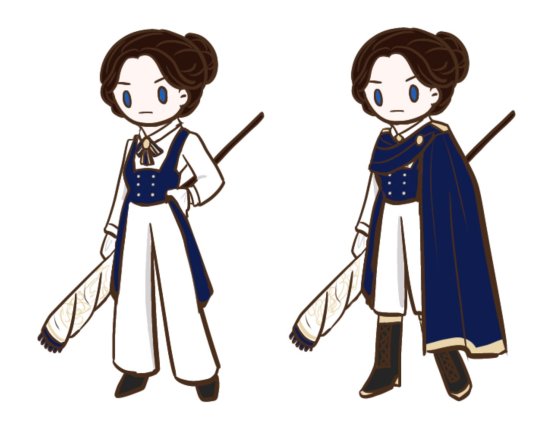
War of the romantics-The Classicists
Commander Felix Mendelssohn
Advisor Fanny Mendelssohn
Aide-de-camp Johannes Brahms
Support officer Clara Wieck
+
Radical Romanticist (Rebel) Hector Berlioz

30 notes
·
View notes
Video
youtube
New on YouTube:
Robert Schumann, Arabeske in C major, Op. 18 (1839)
Performed by Tiffany Poon on Clara Wieck's 1827 Stein piano
5 notes
·
View notes
Text
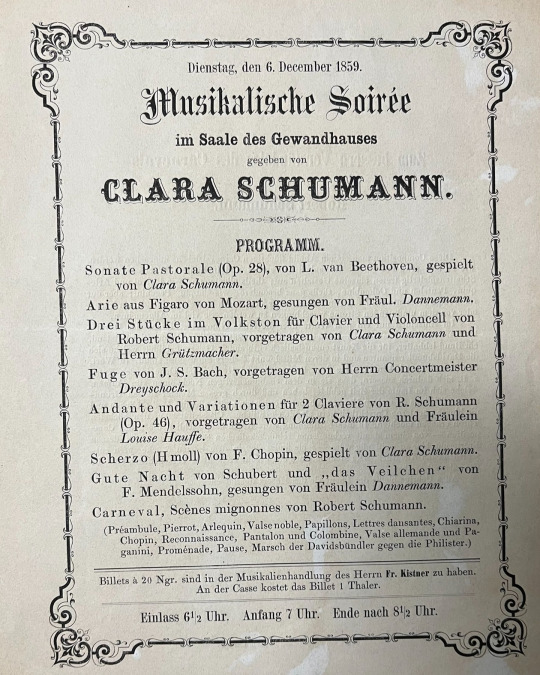

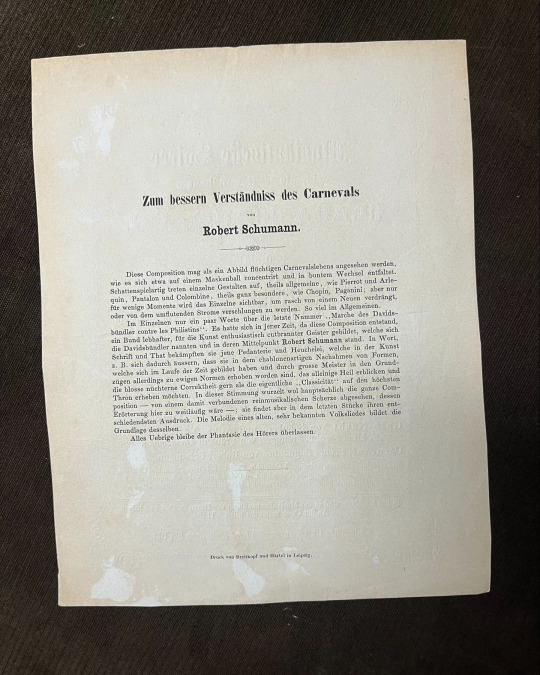

OTD in Music History: Historically important virtuoso pianist and composer -- and widow of legendary composer Robert Schumann (1809 - 1856) -- Clara Schumann nee Wieck (1819 - 1896) is born in Leipzig, Germany. Regarded as one of the most distinguished pianists of the 19th Century, Clara exerted tremendous influence over the musical culture of Europe throughout her remarkable six-decade career. A child prodigy who was trained by her father, she embarked on her first international concert tour at the age of just 11. While still a teenager, Clara married Robert against her father’s loud protestations. Although the marriage was a happy one which produced eight children, she was thereafter forced to sublimate her career to husband’s career for nearly twenty years. It was only after Robert was confined to an insane asylum in the 1850s that Clara truly blossomed as a mature virtuoso, bolstered by her close personal and professional relationships with Johannes Brahms (1833 - 1897) and violin virtuoso Joseph Joachim (1831 - 1907)... PICTURED: An original copy of the program that was handed out to audience members who attended a concert which Clara gave in her hometown of Leipzig in 1859, sponsored by famous German music publisher Breitkopf & Haertel. Very much in keeping with her “conservative” musical bent as well as her tireless dedication to furthering her late husband’s musical legacy, at this concert Clara performed a Sonata by Ludwig van Beethoven (1770 - 1827); accompanied a singer in an Aria from W.A. Mozart’s (1756 - 1791) “Marriage of Figaro” and two Lieder written by Franz Schubert (1797 - 1828) and Felix Mendelssohn (1809 - 1847); played one of Frederic Chopin’s (1810 - 1849) Scherzos; and then topped it all off with several works written by Robert – including his beloved suite of character pieces, “Carnaval.” Quite a program!
#Clara Schumann#Schumann#classical music#music history#composer#classical composer#classical studies#classical pianist#pianist#piano teacher#piano#classical piano#teacher#pedagogue#piano concerto#concerto#concert#Teaching#classical musician#classical musicians#classical#musician#musicians#hisrorian of music#music#music education#classical history#virtuoso#maestro#diva
12 notes
·
View notes
Text
Any idea for Marie's maiden name? Does she have a middle name? What's your suggestion?
I'll start with Marie Elizabeth Wieck. Elizabeth as a middle name because it is aurally congruent with "Wieck"?? The maiden name was inspired by Clara Schumann's because the Clara/Robert Schumann/Johannes Brahms love triangle is just as tragic as Marie/Nile Dok/Erwin Smith.
6 notes
·
View notes
Note
OH I KNOW A LITTLE ABOUT CLARA SCHUMANN!!! her husband was robert schumann and she had to abandon het musical career to be a wife + mother didn’t she?? girl that made me furious to read about
YES!!!! her maiden name was clara wieck and she was so awesome in everything ever she humbled many people and everyone was in love with her. you should listen to her nocturne op 6 no 4 in my opinion it’s the best way to get started with her
#unfortunately this is the case with so many female composers#clara schumann is actually lucky because we have some of her published works#but others are not so well known or completely lost to history#for example. mozart had a sister#called nannerl and she was said to be even more talented than him. but she was a girl in the 1700s so we will never know#mendelssohn had a sister her name was fanny. unfortunate yes but she was also amazingly talented yet overshadowed and forgotten
2 notes
·
View notes
Text
“There is, too, the moment where the absent-minded Walt, by taking a wrong turning, finds himself in the punch room instead of the ballroom, and hears ‘beautifully muted music wafting from a considerable distance’ (‘Musik aus schickliche Ferne schön-gedämpft’). The notion of hearing a snatch of a dance tune from afar, before it emerges into the foreground as though a door has suddenly been thrown open, is one that Schumann duly carried through into his music: the agitated D minor sixth piece of Papillons is interrupted by a waltz-tune in A major, played pianissimo; and the same tune explodes with force a whole-tone lower, in a sort of Doppler effect, in the otherwise gentle tenth number. It was fragmentation of this kind, coupled with the music’s kaleidoscopic changes of mood (both were to become important features of Schumann’s mature music) that caused problems for early listeners to Papillons. When Clara Wieck played the piece at one of her father’s musical soirées in 1832, Schumann noted in his diary: ‘The assembled guests did not seem to me to take in Papillons, as they looked at each other conspicuously and couldn’t grasp the rapid changes.’”
-notes by Misha Donat
0 notes